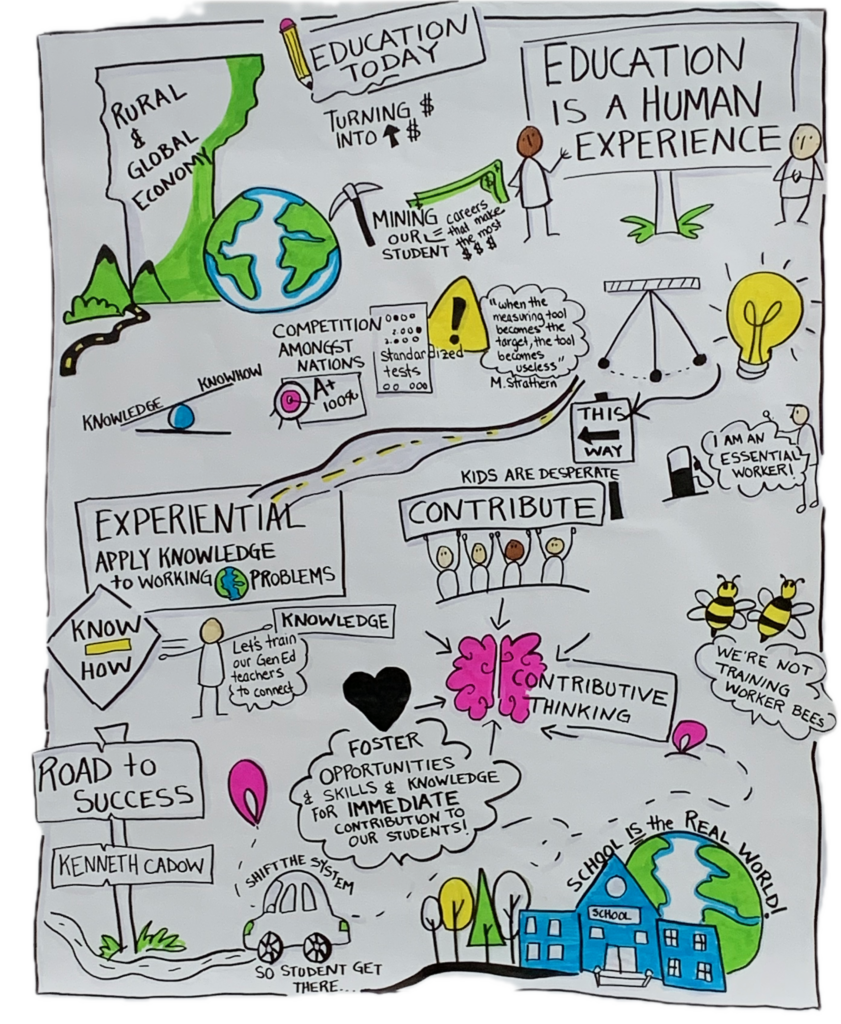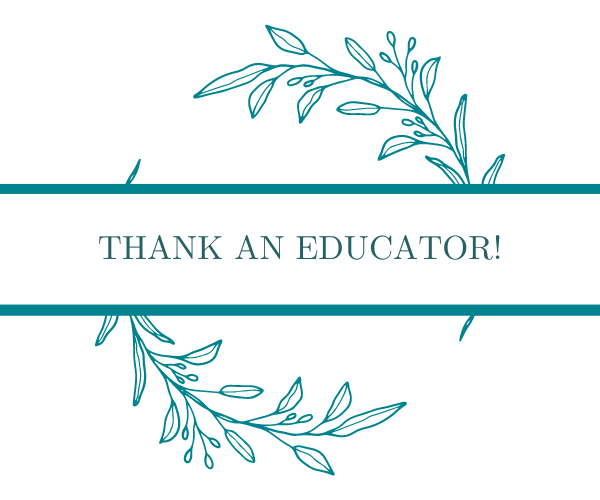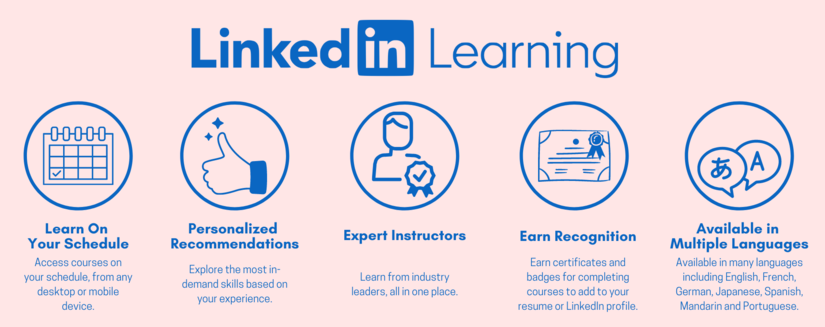November 2024 | Issue 4 | Volume 2 | Previous Issues
Supporting Rural Students
On October 25, the VTSU ROAD to Success grant (read about this grant further below in this newsletter) hosted a Gathering for the Future of Vermont, with a keynote by Ken Cadow, the author of the National Book Award finalist Gather, which is also the Vermont Reads selection for 2024.
Vermont is the most rural state in the nation, with 76% of our 9-12 graders attending a rural school. Ken is an educator and current principal of a rural Vermont high school. His book features Ian, a young man deeply connected to the woods of Vermont, the land-based traditions learned from his grandparents, skeptical of the value of his formal education, and working to balance a precarious life.
Ken’s opening question was, “Where does the road to success go?” He acknowledged that most of us don’t aspire to the leisure class, and that rural students are no different. Ken’s book and talk both raise questions for educators about how we ensure that rural students are valued for their know-how while also being empowered to value knowledge that is relevant and applicable to the problems that matter to them.
Toward the end of his talk, Ken returned to the road metaphor, sharing the observation that roads only matter if mobilization occurs, and mobilization requires drive, traction, and spark.
Rural schools, VTSU included, have opportunities foster this mobilization by to supporting our students to make immediate contributions to their communities, ensuring our curricula are connected to the real world, and honoring and building on students’ existing strengths.

Resources Recommended on October 25:
If you weren’t able to attend the session, you may be interesting the books and an article that Ken mentioned in his keynote, along with one from Dr. Hannah Miller’s breakout session that she highly recommended. Thank you to librarian Charlotte Gerstein for keeping these notes and sharing the links!!
The Tyranny of Merit: What’s Become of the Common Good?
by Michael J. Sandel. (print only)
Stacks 306.0973 Sa56t at Castleton or request
Audit Culture : How Indicators and Rankings Are Reshaping the World
by Cris Shore and Susan Wright (subscription ebook)
The Instinct of Workmanship, and the State of Industrial Arts
by Thorstein Veblen (free ebook online)
The Higher Learning in America: The Annotated Edition: A Memorandum on the Conduct of Universities by Business Men
by Thorstein Veblen (subscription ebook, also available as a free ebook online)
Man’s Search for Meaning
by Viktor Emil Frankl. (print only)
Stacks 150.198 F854m at Castleton, 616.8914 F854m at Johnson or request
Gawande, Atul. “Getting There from Here.” New Yorker, vol. 84, no. 46, Jan. 2009
Intelligence in the Flesh: Why Your Mind Needs Your Body Much More Than It Thinks
by Guy Claxton, (subscription ebook, also available in print: Stacks 150 C579i at Lyndon or request)
Shop Class as Soulcraft: An Inquiry into the Value of Work
by Matthew B. Crawford (print only)
Stacks 331.013 C858s at Johnson, 331 C858s at Lyndon and Castleton or request
Culturally Responsive Teaching and The Brain: Promoting Authentic Engagement and Rigor Among Culturally and Linguistically Diverse Students
(subscription ebook, also available in print: Stacks 370.117 H185c at Castleton or request)
Jen Garrett-Ostermiller, Director
Jeff Tunney, Associate Director
Center for Teaching & Learning Innovation @ VTSU
Get to know us!
Teaching Tip: Supporting Rural Students

Jeff Tunney
Associate Director of the Center for Teaching & Learning Innovation
In recent years, the terms education desert and learning desert have become more recognizable. Although definitions can vary, they are akin to food deserts, which are geographic regions in which healthy food isn’t readily available. In the case of higher learning, education deserts are areas in which post-secondary education is limited or entirely out of reach. Fortunately, the expansion of broadband Internet access and the growth of hybrid and online modalities is creating more opportunities for rural Vermonters to attend college, but this demographic of student often has unique challenges that should be considered as we support them in their academic journeys.
The focal point of the February 2024 issue of the Vermont State Educator was on supporting first generation college students, and some of the support strategies from that issue of the newsletter are also applicable to rural students who are often first gen students as well. Some additional tips pertaining to rural students are outlined below:
- Social networks – For rural students on campus who are accustomed to tight social networks, participation in collegiate organizations assists in the adjustment process (Byun et al., 2012). Encouraging them to join clubs and student groups could be helpful in getting rural students to form bonds with their classmates. Also, encouraging rural students to form study groups could be helpful in easing their transition to a setting with unfamiliar cultural norms.
- Community-focused assignment(s) – Consider developing an assignment, or assignments, that analyze issues present in the students’ communities or hometowns. Such activities can help students reflect critically on their communities, develop communication and other skills, and identify solutions to social problems (Greenberg, London, & McKay 2020; Hall & Jones, 2021; Wollschleger, 2019). This approach of connecting content to students’ communities also allows rural students to capitalize on strengths, such as existing connections to place and family support, while also highlighting the diversity of rural communities (Ardoin, 2017; Whiteside, 2021).
- Use the data – If your course uses data, such as the statistics available through entities such as the Census Bureau (census.gov) and the Bureau of Labor Statistics (bls.gov), consider integrating a comparative assignment that analyzes experiences or trends in urban, suburban, and rural settings.
- Classroom discussion – If a course delves into discussions about social stereotypes and discrimination, holding a discussion about the perceptions of urbanites and those living in rural regions could be a productive exercise.
By 2027, 70% of U.S. jobs are predicted to require education beyond high school (Blumenstyk, 2020). Rural areas face workforce shortages in business, healthcare, technology, and education, as well as an overall need for higher-skilled employees with bachelor’s degrees (Bozarth & Strifler, 2019). As a result, institutional commitments to the education of our rural students will yield positive outcomes not only for the students themselves, but also for the small communities in Vermont they may return to following their studies.
References and Additional Reading:
- Ardoin, S. (2017). College aspirations and access in working-class rural communities: The mixed signals, challenges, and new language first-generation students encounter. Lexington Books.
- Blumenstyk, G. (2020, January 22). By 2020, They Said, 2 Out of 3 Jobs Would Need More Than a High-School Diploma. Were They Right? The Edge: The Chronicle of Higher Education. https://www.chronicle.com/newsletter/the-edge/2020-01-22
- Byun, S., Meece, J., Irvin, M., & Hutchins, B. (2012). The role of social capital in educational aspirations of rural youth. Rural Sociology, 77, 355–379. https://doi.org/10.1111/j.1549-0831.2012.00086.x
- Chandler, J. & Baeta, D. (2023). National rural college completion Trends, challenges, and solutions. The Institute for College Access & Success. https://ticas.org/wp-content/uploads/2023/12/2023.-Rural-College-Completion-National-Primer_v2.pdf
- Hillman, N., & Weichman, T. (2016). “Education deserts”: The continued significance of “place” in the twenty-first century. Viewpoints: Voices from the Field. Washington, DC: American Council on Education. https://www.acenet.edu/Documents/Education-Deserts-The-Continued-Significance-of-Place-in-the-Twenty-First-Century.pdf
- Grant, P. D., & Kniess, D. (2023). “I just kind of felt like country come to town:” College student experiences for rural students at one flagship university. The Rural Educator, 44(3), 1-16. https://doi.org/10.55533/2643-9662.1357
- Greenberg, M., London, R. A., & McKay, S. C. (2020). Community-Initiated Student-Engaged Research: Expanding Undergraduate Teaching and Learning through Public Sociology. Teaching Sociology, 48(1), 13–27.
- Manly, C.A., Wells, R.S. & Kommers S. (2020). “Who are rural students? How definitions of rurality affect research on college completion. Research in Higher Education, 61:764–779. https://doi.org/10.1007/s11162-019-09556-w
- McNamee, T. C., & Ganss, K.M. (2023). Rural students in higher education: From college preparation and enrollment to experiences and persistence. Peabody Journal of Education, 98:4, 380-395. https://doi.org/10.1080/0161956X.2023.2238508
- Stough-Hunter, A. & Lekies, K. (2023). Effectively engaging first generation rural students in higher education: New opportunities for sociology. American Sociological Association. https://journals.sagepub.com/doi/10.1177/0092055X231174516
- Whiteside, J. L. (2021). Becoming academically eligible: University enrollment among first-generation, rural college goers. Rural Sociology, 86(2), 204–228. https://doi.org/10.1111/ruso.12353
- Wollschleger, J. (2019). Making it count: Using real-world projects for course assignments. Teaching Sociology, 47(4), 314–324. https://doi.org/10.1177/0092055X19864422
ROAD to Success Project

As shared on the Vermont State University website earlier this year, the U.S. Department of Education awarded the institution $1.9 million dollars over four years through the Rural Postsecondary and Economic Development program and the grant was earmarked to fund the ROAD to Success Project, which is moving forward in earnest.
What is the ROAD to Success Project?
The ROAD (Rural Opportunities and Development) to Success project is a federally funded project to help address some of the barriers that rural Vermont students often experience when pursuing higher education. This project also works with educators, community leaders and employers to identify ways to encourage our rural Vermont students to reach for the high-skill careers that Vermont needs the most.
Why is the ROAD to Success project needed?
“Vermont is the most rural state in the US, with 62% of the population living in rural areas and 76% of grade 9 to 12 students attending rural high schools. Rural students are currently less likely than their urban counterparts to enroll in and graduate from four-year education programs. In Vermont, only 59% of rural students enroll in higher education, compared to 67% of urban and suburban students. This jeopardizes both the prospects for the students to enter high-wage jobs and also for the Vermont workforce, which has a strong need for highly skilled workers in a variety of fields.”
Vermont Business Magazine, January 1, 2024
What are the goals of the ROAD to Success project?
- Increase the number and proportion of rural students, particularly the low-income and underserved, who transfer and/or enroll at VTSU in postsecondary education programs.
- Develop and implement student success programs that integrate multiple comprehensive and evidence-based services or initiatives, such as academic advising, structured/guided pathways, career development, student financial aid, and access to technological devices.
- Increase the number of high-quality and accessible learning opportunities at VTSU, including learning opportunities that are accelerated or hybrid online, credit-bearing; and flexible for working students.
Who is eligible for ROAD to Success?
This initiative targets Vermont’s rural population, providing comprehensive support to rural Vermont high school graduates and transfer students from rural CCV campuses enrolled at or wishing to transfer to one of VTSUs rural campuses: Castleton, Johnson, Lyndon, or Randolph. Students must be enrolled full-time in a 4-year undergraduate program.
What services will be available for eligible students?
- Flexible career pathways
- Success advising
- 24/7 remote tutoring
- Support meeting technological needs
- Compensation for experiential learning
How can faculty members teaching at participating campuses help in this endeavor?
- Encourage your students to apply!
- Reach out to the ROAD to Success Project Director, Beth Walsh, at beth.walsh@vermontstate.edu, if you have questions or would like to support her in her efforts.
Spring 2025 – Syllabus Template Available
Each semester, the CTLI publishes an updated syllabus template, to stay current with policies, context, and the dates of the semester. No matter what modality you’re teaching in, the syllabus can be edited to meet your needs. While the template appears to be lengthy, it will become much shorter when you tailor it to your course (deleting the highlighted language, which is instructional for you).
As with previous versions, the The Spring 2025 Syllabus Template can be previewed and downloaded from the CTLI website.
Below are several changes that were made to the previous iteration of the template:
- A link to an online course workload calculator has been added as a tip in the ‘Credit Hours and Student Work’ section of the template.
- Minor changes were made to the grade distribution example.
- One of Library Services’ modes of contact was updated in the ‘Library’ section of the template. They will now be using Microsoft Teams instead of Zoom.
- The schedule of activities was updated with relevant 2025 dates.
The goals of the syllabus template are twofold:
- To make your life easier – you don’t have to look up the dates of the semester or make sure your syllabus reflects current policy.
- To create consistency for students – consistent organization of syllabi, Canvas course spaces, assignment sheets, and other teaching materials reduces cognitive burden (extraneous cognitive load) for students, allowing them more capacity to focus on the important cognitive task of learning.
Given this second goal of consistency, we also encourage you to adopt the CTLI Canvas Template. This template allows you full freedom to customize the content of the course and focuses exclusively on the organization and structure of the course. The more classes that adopt the template, the easier it is for students to find what they need quickly, reducing frustration and emphasizing class engagement.
Thank an Educator Program

In December 2023, the CTLI launched the inaugural semester of our ‘Thank an Educator’ program, which is now in its third iteration. For those of you who are unfamiliar with it, the VTSU ‘Thank an Educator’ program provides a way for undergraduate and graduate students as well as alums to send a note of thanks to educators who have had a meaningful impact on their education and lives.
As we will be soliciting feedback from students in the coming week, we wanted to set aside a space to share a few excerpts from the prior semester that highlight the ways that excellent teaching, compassionate mentoring, nonjudgmental staff, and professional competence make a difference in our students’ lives.
“Thank you for taking the time out of your day to make sure that each of your students is doing well mentally and physically. It surely takes a village, but you are doing amazing!”
“Thank you for taking the time to reach out to me when you saw I was struggling and taking the time to make sure I was okay.”
“Thank you for putting in such an effort to make content that can be complicated to process easier for students to digest and always making sure we are ready for anything that will come our way. You root so much for each and every student’s success and it empowers us to strive to do better. This does not go unnoticed, and it is appreciated every single day that you put in this effort for your students!”
“You have been an incredible resource for my education; and you enriched my life by your kindness! You are an incredible mentor and your patience with us (students) is unmeasurable. Thank you for taking the time to coach us on one on one, and for all you do!”
“I am writing to express my heartfelt gratitude for your exceptional mentorship and guidance during my time as your student and currently as your co-worker. Your patience, kindness, and willingness to share your knowledge have significantly impacted my professional development.”
From the Center for Teaching & Learning Innovation, we thank you for the daily efforts you make to support all your students, and we look forward to sharing their notes of gratitude as we get closer to the holiday season.
University Partner Update – Student Success
Updates from the Tactical Team and Strategy Committee
Since launching early in 2024, the Tactical Team and Strategy Committee have identified and addressed a number of barriers to student success. The teams work together closely to enhance the student experience and improve student outcomes. Here are the highlights of progress so far this fall:
Action Items:
- Student Employment Proposal – The purpose of this proposal is to improve the student employment process including the creation of a student employment advisory board and a comprehensive marketing and education campaign designed to expand access to on-campus employment opportunities and create stronger connections between students and the campus community, as well as promote financial security and improve job readiness. The proposal was approved on October 21.
- Mental Health Recommendation – The purpose of this recommendation is to increase mental health services offered at VTSU, especially for online students who reside outside of Vermont. The solution would also provide 24/7 access for all community members to TalkNow, telehealth psychiatry care for all students, and access to mental health care providers from diverse backgrounds. The recommendation was endorsed conceptually on October 21and the Executive Leadership Team will include the request for funding in the FY26 budget process.
- Winter Session – Increasing the number and variety of courses offered during the winter session (also known as Jan-term) was raised earlier this semester as a way for students to stay on track for graduation. Students who drop or fail classes in the fall or are looking for extra courses can “catch up” on credits or “get ahead” by taking classes during the winter session. Representatives from the Tactical team will bring this recommendation to the Academic Calendar committee for consideration. In the meantime, the academic deans and the faculty are encouraged to offer a range of courses suitable for students with fewer than 60 credits, especially general education courses, during the upcoming 2025 winter session.
Other Updates:
- FAFSA Completion Initiative: VTSU partnered with VSAC to increase the number of FAFSA completers last summer. Work continues to encourage and incentivize students to complete the FAFSA in the first 90 days for the 2025 – 2026 year. Stay tuned for the FAFSA Completion Campaign and Workshops.
- Think 30: Research supports the concept that students who complete 30 credits during their first year (and every year!) are more likely to graduate on time. As advising and registration for the spring semester begin, talk with your students about on-time graduation and assist them to plan for 30 credits per year.
- Food/Transportation/Housing Insecurity Survey: In partnership with the University of Vermont, VTSU is surveying students about some of their basic needs to learn how to best offer support. In the meantime, each of VTSU’s main campuses offer a food pantry for students.
- Summer programming for international students: The Tactical team is exploring the possibility of offering a 2-week 3D Imaging course for international high school students from China. Stay tuned as the team develops a program.
Teaching with AI – New Options

Are you interested in learning more about ChatGPT and other artificial intelligence (AI) tools?
During the Spring 2024 semester, the Center for Teaching & Learning Innovation partnered with the Auburn University Biggio Center for the Enhancement of Teaching and Learning to provide VTSU faculty members with an opportunity to participate in the award-winning Teaching with AI, a fully online, self-paced, asynchronous course especially designed for higher education faculty.
The course, which includes content focused on the technical, pedagogical, theoretical, and ethical implications of AI, should be beneficial to beginners as well as more advanced users of this emerging technology.
What recent changes have occurred?
The current Auburn course includes 8 modules, but it is being restructured as a 5-module class that will begin to be offered on December 2nd, 2024.
| Category | Original Course | Revised Course |
|---|---|---|
| Number of Modules: | 8 | 5 |
| Badging: | One badge after completing all eight modules | Badges awarded upon completion of each module, and a course-level badge for those earning all five module badges |
| Contact Hours: | 8-10 total hours | 5-7 total hours |
| Assignments | One discussion and one assignment at the end of each module | One discussion at the end of each module with one capstone discussion |
| Timeline for VTSU licenses: | Complete by December 1, 2024 | Complete between December 2, 2024 – April 30, 2025 |
What options are available for currently enrolled instructors?
Faculty members who have already been enrolled in the 8-module course have the option of (a) completing the course by December 1st or (b) switching into the 5-module version on December 2nd.
All licenses will switch to the Revised Course on December 2, 2024. If you there is content or uploaded work in the Original Course you would like to save, please download it before December 1, 2024.
What options are available for faculty members joining the 5-module course?
- Complete the course on your own by April 30th, 2025.
- Join a cohort of peers that will complete the course between January 21st and February 21st, 2025.
- Join a cohort of peers that will complete the course between March 3rd and April 4th, 2025.
What steps should I take to join the 5-module course?
- If you are currently enrolled and plan to complete the 8-module version, no additional steps are needed. Please continue with the course and complete it by December 1st.
- If you are a faculty member who is either interested in taking the 5-module course or switching into it from the 8-module version, please submit the following form.
LinkedIn Learning Available for Faculty, Staff, & Students
LinkedIn Learning is now available to everyone on campus, including students, at no cost!

What is LinkedIn Learning?
LinkedIn Learning provides 24-hour access to high-quality, on-demand, online video courses and collections for professional development and training in specific skills, taught by industry experts. LinkedIn Learning has over 300,000 tutorials and 16,000+ professionally produced videos on a wide range of topics, including:
Here are some LinkedIn Learning courses that may be of interest to you and your students:
- Career Advice from Some of the Biggest Names in Business
- Demystifying ChatGPT and Generative AI: What Every Professional Needs to Know
- Grammar Girl’s Quick and Dirty Tips for Better Writing
- Learning How to Increase Learner Engagement
- Learning Study Skills
- Teaching with Technology
Bookmark LinkedIn Learning in your favorite browser and use your VTSU credentials to sign in.
The VTSU license for LinkedIn Learning is available through a recent federal grant for the next two years.